These 10 Great Sustainable Finance Books Could Make You an Expert
Updated April 30, 2024 by Nicole GustasSustainable finance is a rapidly evolving discipline with many different perspectives. If you’re just starting to learn about it, we’ve developed a list of books that provide an excellent background. The books below range from basic overviews targeted at the general public to academic deep dives to advice to the people who make the decisions about sustainable investing. No matter what angle you’re looking at for sustainable finance, you’re likely to find a book that suits your needs below.
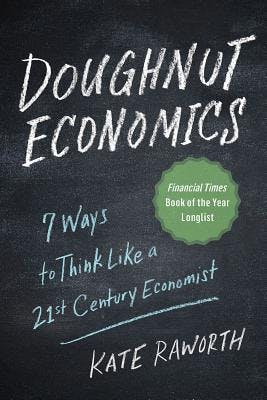
Doughnut Economics: Seven Ways to Think Like a 21st Century Economist
Kate Raworth
Doughnut Economics has been a sensation since the author, economist Kate Raworth, published it in 2017. If anything, its fame and influence continues to grow, with articles still being written about the book and the social movements that it has inspired, including Raworth’s own Doughnut Economics Action Lab. This award-winning book proposes a new economic model, one which prioritizes sustainability. The book is clear, engaging and written with the layperson in mind – and it has a sense of humor to boot, which may be the key to its success. The theory behind it is foundational for many people working in sustainable finance – so if you haven’t read it, now is a great time to dig in.
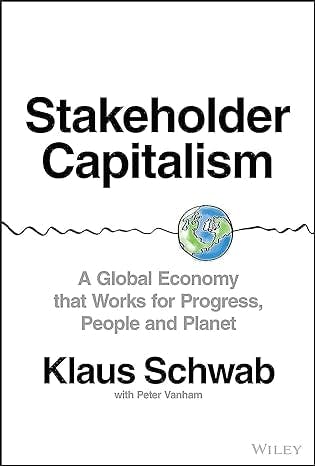
Stakeholder Capitalism: A Global Economy that Works for Progress, People and Planet
By Klaus Schwab and Peter Vanham
Before there was Doughnut Economics, there was Stakeholder Capitalism. In 1971, Klaus Schwab first put forth his thesis that businesses should not just serve shareholders, but must also take into account society at large – the stakeholders. This book is the culmination of his life’s work and explains this philosophy in a clear and accessible manner. This will give you a broader and longer perspective on the sustainable finance movement.
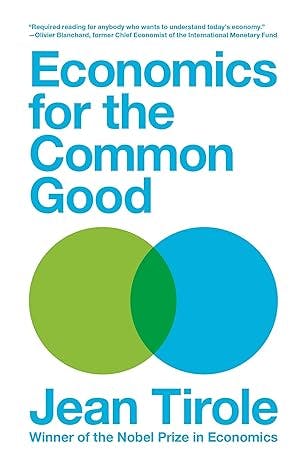
Economics for the Common Good
By Jean Tirole
This book works as a great primer for people trying to grasp exactly what the field of modern economics is and how it works, as well as creating a vision for how it can help the future. Nobel Prize-winning economist Jean Tirole wrote this book specifically with a general audience in mind. He breaks down how the field of economics works in our current society, what individual economists do, and explains his view on how economics can remedy the greatest crises of our future, including climate change.
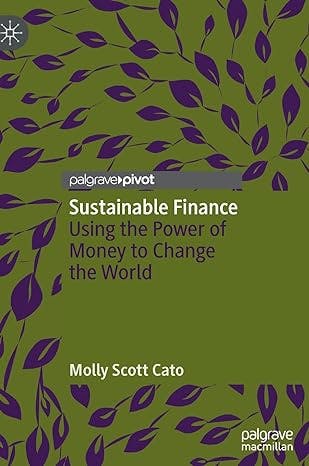
Sustainable Finance: Using the Power of Money to Change the World
By Molly Scott Cato
If you are just getting started with sustainable finance and need a good backgrounder, you’ve found it. Sustainable Finance: Using the Power of Money to Change the World balances a broad overview with enough detail to give you a basic education without overwhelming you. Professor Molly Scott Cato has been a legislator in the European Parliament, so much of her knowledge is through experience. While it is a global view, there is a lot of European focus in this book.
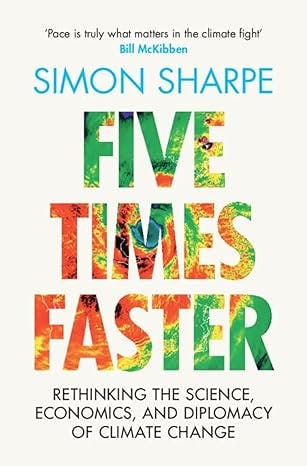
Five Times Faster: Rethinking the Science, Economics and Diplomacy of Climate Change
Simon Sharpe
Simon Sharpe says bluntly in his introduction, “This book is about why we are all still being so shit at dealing with climate change, and how we can stop that without needing to become better people or have better leaders.” The rest of the book is just as straightforward. Rather than looking at economics in isolation, it looks at how it is a component of slowing our slog toward sustainability. Sharpe does get technical at times, which is engaging for the finance nerds and not too hard for the rest of us to digest.
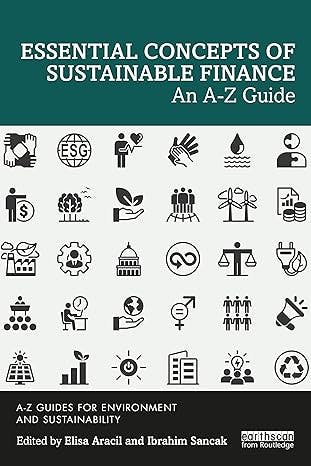
Essential Concepts of Sustainable Finance: An A-Z Guide
By Elisa Aracil and Ibrahim Sancak
Finance has a lot of jargon. Sustainability does too. Put the two together and you can wind up with an impenetrable jargon jungle. This A-Z guide is set up like a dictionary, with all the terms in alphabetical order. This is written for use in university classes, so the language does get academic. But it’s a must for anyone who is starting to dig down beneath the surface level of sustainable finance.
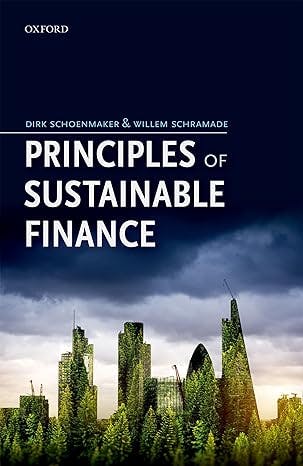
Principles of Sustainable Finance
Dirk Schoenmaker, Willem Schramade
If you’d like to give yourself a class on sustainable finance, start with this book. It’s currently the foundational textbook for many sustainable finance classes. That having been said, it’s also surprisingly readable and makes it much easier to wrap your head around the concepts. Each chapter has a Learning Objectives section, which is a good overview of what the section will teach you. Schoenmaker has also released a free guide for companies creating sustainable finance policies called Corporate Finance for Long-Term Value.
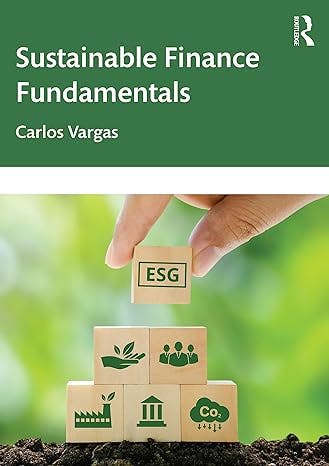
Sustainable Finance Fundamentals
Carlos Vargas
Dr. Carlos Vargas is a seminal figure in sustainable finance. He developed the curriculum for Harvard’s first sustainable finance course, which he then brought to the University of Zurich. The book gives an overview of the different approaches to sustainable finance, the difference between the many types bonds, how indices and passive investments work, alternative assets to invest in, how investments can expedite the transition to clean energy, and innovations such as artificial intelligence can change sustainable finance. Vargas is aware that many of his students come from a non-financial background, and this volume also has appendices to explain basic principles of finance such as the time value of money and the ins and outs of financial statements.
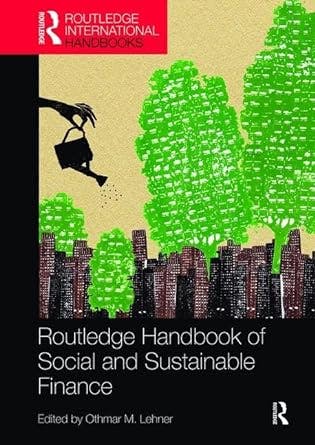
Routledge Handbook of Social and Sustainable Finance
Edited by Othmar M. Lehner
This is the book for people who want to go in-depth on the history of and perspectives on sustainable finance. Coming in at a hefty 732 pages, each chapter is written by a different leading light in the field – and it’s definitely the most in-depth book on our list. In fact, it’s possibly the most in-depth book on sustainable finance out there. This isn’t the first book you should read on sustainable finance, but if you want to dig deep on the topic, it’s the perfect text.
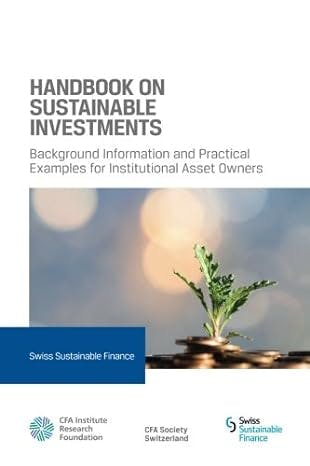
Handbook on Sustainable Investments: Background Information and Practical Examples for Institutional Asset Owners
By Swiss Sustainable Finance
Swiss Sustainable Finance has created a roadmap to creating sustainable finance policies for your organization in Handbook on Sustainable Investments. This is also a great read if you want to get into the heads of the people who develop sustainability policies for financial organizations – and can provide you with some language you can use to influence them.
We hope you enjoy this list of climate change books - we hope it helps.
Start to Bank Green Today
Banks live and die on their reputations. Mass movements of money to fossil-free competitors puts those reputations at grave risk. By moving your money to a sustainable financial institution, you will:
Send a message to your bank that it must defund fossil fuels
Join a fast-growing movement of consumers standing up for their future
Take a critical climate action with profound effects